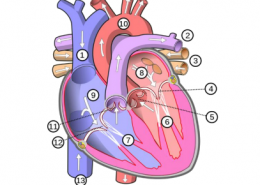Mendel’s pea plant experiments involved controlled crosses. Traits like flower color were studied. Cross-pollination of parental plants with specific traits led to predictable ratios in the offspring, revealing principles of inheritance.
Home/cbse class 10 science sample question paper 2023-2024/Page 4
Discussion Forum Latest Questions
Prasant
Asked: In: Class 10 Science
A food chain illustrates the transfer of energy in an ecosystem, showing the sequential flow of organisms consuming one another. Producers, consumers, and decomposers play vital roles in sustaining this dynamic process.
Prasant
Asked: In: Class 10 Science
A concave lens is a transparent optical device with curved surfaces that diverges light rays. It causes parallel light rays to spread out and is commonly used in correcting nearsightedness in eyeglasses.
Prasant
Asked: In: Class 10 Science
A convex lens is a transparent optical device with curved surfaces that converges light rays, causing them to meet at a focal point. It is used in magnifying glasses, cameras, and eyeglasses.
